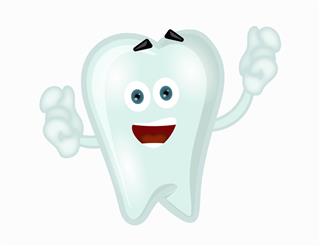
Root canal procedures sound agonizing. Severe jaw pain after root canal may make you press the panic button. There are some underlying causes due to which the pain erupts. This article explicates the reasons why the pain persists, even after the root canal procedure is conducted.
The thought of finding yourself on the dentist’s chair is highly dreaded. No wonder, we continue with the pain and agony for long, before the pain drags us to the clinic. One of the most dreaded procedures is that of root canals. This procedures are coveted amongst the most painful dental procedures. Apart from the maxilofacial surgeries and the orthodontic treatments, enduring a root canal is regarded as a procedure that requires you to have nerves of steel. However, authorities in the field are of the view that root canals are not as painful as they are known to be.
Severe jaw pain is considered inevitable by the one who endures the surgery. There are certain circumstances in which the individual may counter severe jaw pain, whereas on the other hand, the procedure may cause pain, being but marginal, in nature.
What Is a Root Canal?
A root canal is the procedure in which the diseased or damaged tissue is extracted from the roots of the tooth. The canal where the tissue resided is cleaned after the removal, and the pulp chamber is then filled with nickel titanium files.
Why Is a Root Canal Prescribed?
Our teeth are held by roots. When these roots become weak and the nerves that are contained in the roots get infected, the endodontist prescribes this procedure. It is through this procedure that the infected roots can be treated. The infected tissues in the root are treated and the abscesses formed inside the root is drained out successfully.
In order to understand why a root canal is required it is necessary that we understand the anatomy of a tooth. A tooth has three components. The enamel, dentin and dental pulp. The enamel is a hard protective shell, the dentin is the middle layer that is sensitive and delicate in nature and the dental pulp constitutes the soft nerve tissues.
The dental pulp is the most essential part in the tooth as it constitutes the nerve tissues, the blood vessels and the lymph tissues. When the dental pulp endures a bacterial infection; a fracture that seeps into the inner tissues, the foundation of the tooth is injured, which leads to the tooth dying. A therapy is done in order to save the tooth from further decay and prevent tooth loss.
How Long Does Root Canal Procedure Take?
Root canals in the most elementary conditions, can be completed in a single appointment. They normally last between one to two hours, however the time may vary, depending on how complicated the root setting is.
Causes of Severe Jaw Pain
The jaw pain after the treatment is evident due to the reasons that are provided in this section of the article.
- The first reason could be the probability that the inner filling, that constitutes the gutta-percha, has extended beyond the root tip region, thus causing pain, leading to inflammation.
- The second reason could be the root canal procedure itself. When the procedure was being conducted, there might have been an instrument that got stuck or entwined in the region surrounding the canal.
- Jaw pain post surgery can be attributed to a very simple reason of keeping the jaw open for long, throughout the procedure.
- Another reason behind enduring the simmering ache is wrong diagnosis. There may be a periodontal disease that may not have been diagnosed properly. The gums are also affected due to jaw pain and inflammation.
- Toothache can be another cause of the pain and swelling of the jaw.
- Jaw pain on one side is caused when the tooth belonging to a particular side is severely affected.
- When the dental pulp begins to die and the inflammatory response is derived, the infection and the inflammation that the pain instigates is tremendous. This results in toothache and inflammation, leading to pain in the jaw.
What If the Jaw Pain after Root Canal Persists?
You may find that there is little or no jaw pain after root canal, provided the procedure is conducted as soon as tooth decay or infection is detected. If infection in the tooth has seeped in deep before the procedure is conducted, a considerable period is required for the tooth to heal after the procedure, and you may experience some pain in the jaw.
There may be moderate to severe pain which may stay for several days, or it may vanish in a few hours after the treatment. If the pain in the tooth persists and is of extreme intensity, do not neglect the jaw pain and consult your dentist. If the procedure is performed well, the tooth can survive for up to 10 years after the surgery.
How to Soothe the Jaw Pain Post the Procedure?
You may apply and adopt some of these methods to curb the pain inflicted by the treatment.
- Root canal pain, bothering your jaw, can be treated with over-the-counter pain relievers or antibiotics that are prescribed by your endodontist. Make sure that you complete the course prescribed. Failing to do so, may invite pain and discomfort in the long run.
- Gargling with warm saline water is a great way to curb the pain.
- Cold compress will also provide great relief to the jaw.
- Try not to strain your jaw by consuming soft victuals. Extremely hot or chilled food items must not be consumed for at least one week or as advised by the concerned endodontist.
- Avoid, or better still, quit the tobacco tube and keep a tab on the pegs you slurp, post the treatment, for these habits may adversely affect your tooth condition.
These methods will be helpful in reducing the pain in your jaw. However, if these remedies fall short of providing you with the much-needed relief, they would at least keep you going until you reach the dentist’s chair to correct the condition. Tooth troubles are bothersome and painful. Remember to maintain good teeth health to never find yourself confined on the dreaded dentist’s chair.




